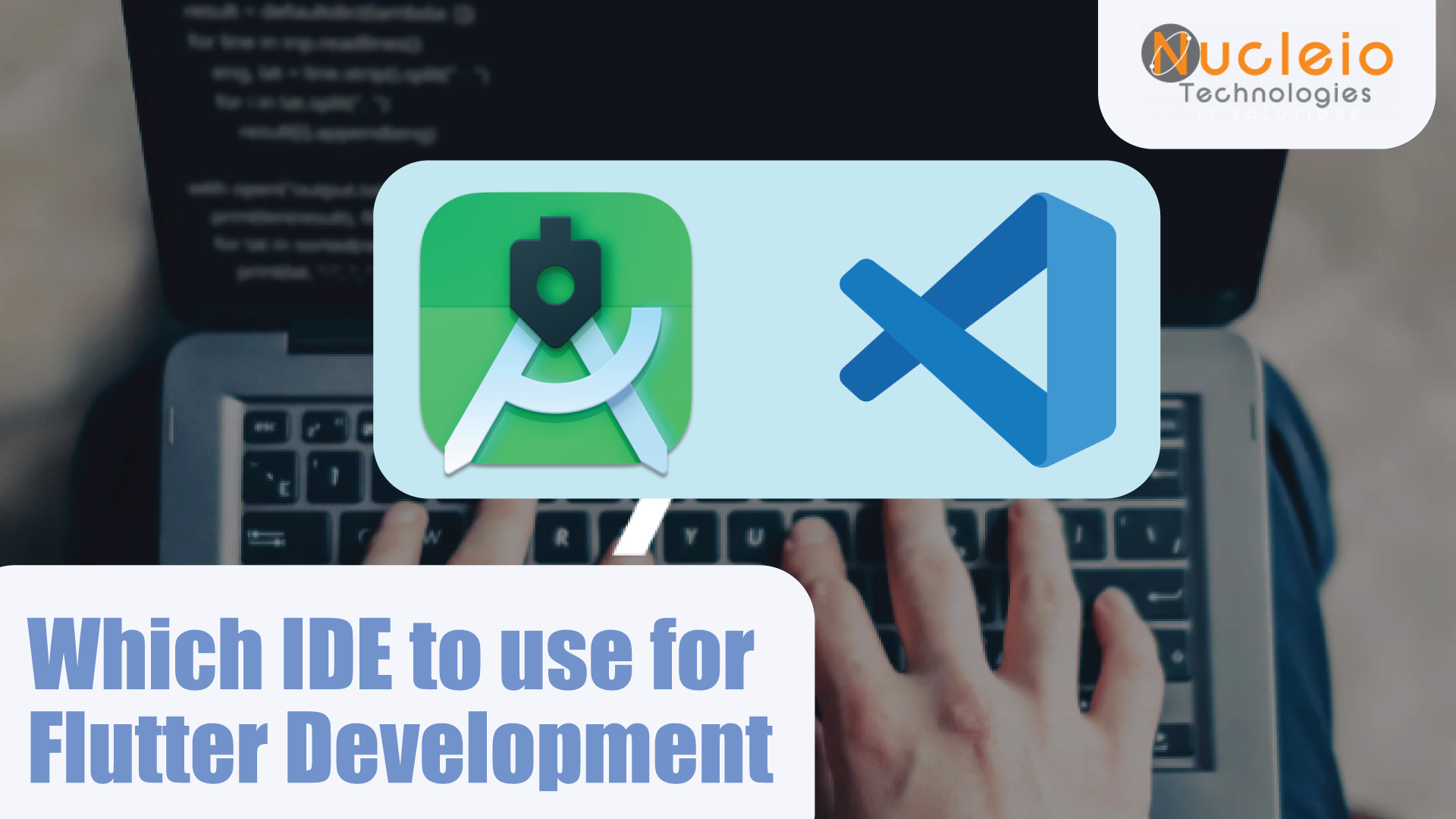Are you confused about what integrated development environment (IDE) to use for Flutter development? There are many IDEs out there, and two of the most famous are Visual Studio Code (VS Code) and Android Studio. In this blog, we will compare the two, helping you in the process of picking the right IDE for your Flutter development journey.
Android Studio

Android Studio is developed by Google, and it serves as the official IDE for Android app development and boasts robust support for Flutter. It offers a more extensive feature set compared to VS Code, tailored explicitly for constructing Android and Flutter applications. Below are the reasons why Android Studio might be your preferred option:
- Android Studio comes equipped with lots of emulators, facilitating the testing of your Flutter app on a range of virtual devices. Additionally, it streamlines device management for conducting tests across diverse Android versions and screen dimensions.
- Android Studio offers profiling and debugging utilities, aiding in the identification of performance bottlenecks and the optimization of your app’s functionality. This feature is beneficial during the development of intricate Flutter applications.
- Android Studio seamlessly integrates with Flutter and Dart, offering a solution and kit for Flutter development. It presents an intuitive interface with functionalities designed to streamline the app-building process.
VS Code (Visual Studio Code)

VS Code is one of the famous and flexible IDE in the development community owing to its lightweight design and vast array of extensions. Developed by Microsoft, it stands as an open-source code editor, engineered to be highly adaptable while maintaining efficiency and speed. In the case of Flutter development, VS Code presents several advantages:
- VS Code is known for its responsive performance, even on less robust hardware. This characteristic renders it appealing to developers seeking a seamless coding experience without compromising on speed.
- VS Code has a built-in terminal, eliminating the necessity to toggle between the editor and a separate terminal window. This integration simplifies tasks and consolidates everything into a single location.
- The VS Code marketplace offers an extensive range of extensions explicitly designed for Flutter development. These extensions furnish features such as IntelliSense, debugging support, and hot reload, thereby augmenting the development workflow.
Conclusion
In conclusion, both Visual Studio Code (VS Code) and Android Studio offer robust environments for Flutter development, with Android Studio providing comprehensive tools like a powerful emulator and profiling features, while VS Code shines for its lightweight nature and extensive extension library. The choice between them depends on individual preferences and project requirements.

